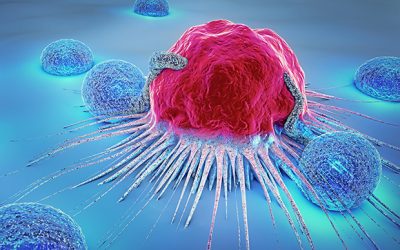Researchers from King’s College London (KCL), Guy’s and St Thomas’ Hospital Trust and the Francis Crick Institute have revealed that a type of immune cell can help predict how melanoma patients will respond to immunotherapy treatment.
Melanoma, responsible for around 16,700 new cases in the UK every year, is a type of skin cancer that can spread to other areas of the body.
When cancer attacks the body, the immune system weakens when checkpoint proteins on immune cells are targeted, causing immune cells to become suppressed and deactivated and allowing cancer to grow unchecked.
Immune checkpoint inhibitors (ICIs), a type of immunotherapy treatment, work to reverse this process by blocking the pathways to the checkpoints on T cells. However, patients living with advanced cancers do not benefit from ICIs, which can often cause lifelong side effects.
Researchers analysed the clinical data from 127 melanoma patients who were being treated with ICIs, which targeted the PD-1 immune checkpoints.
Researchers found that Vd1-gd T cells were successfully able to predict positive responses to ICI therapy, especially in cancers with few mutations.
Using a new technique, researchers isolated and grew Vd1-gd T cells from human tissues and demonstrated how they could be reactivated by ICI therapies that are currently available to treat advanced skin cancer in the NHS.
Additionally, evidence that Vd1-gd T cells could be more resistant to suppression from cancer cells was found when compared with more common T cells, meaning that therapies using Vd1-gd T cells could work for longer durations of time.
“These therapies are both costly and… can cause… life-long side effects,” explained Dr Shraddha Kamdar, research fellow at KCL. “The study findings may help doctors decide which patients are most likely to benefit from current immunotherapies” and could lead to the development of new and more effective treatments for patients with melanoma who are less likely to benefit from the current immunotherapies.










